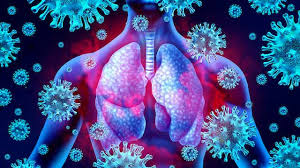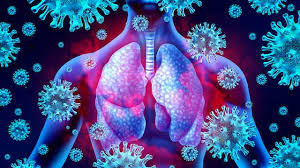
Researchers pursuing long-term COVID cures are eager to learn whether naltrexone, a generic drug typically used to treat alcohol and opioid addiction, can provide similar benefits to millions of people suffering from pain, fatigue, and brain fog months after infection with a coronavirus.
The drug has been used with some success to treat myalgic encephalomyelitis/chronic fatigue syndrome, a similar complex post-infectious syndrome characterized by cognitive deficits and overwhelming fatigue.
According to a Reuters review of Clinicaltrials.gov and interviews with 12 ME/CFS and long COVID patients, there are now at least four clinical trials planned to test naltrexone in hundreds of patients with long COVID, based on its use in ME/CFS and a handful of long COVID pilot studies.
It is also on the short list of therapies to be evaluated in the $1 billion RECOVER Initiative, which seeks to unearth root causes and find therapies for long COVID, according to trial advisers.
Low-dose naltrexone (LDN) may counteract some of the underlying pathology driving symptoms, they said, as opposed to treatments aimed at addressing specific symptoms caused by COVID damage to organs such as the lungs.
According to Dr. Jarred Younger, director of the Neuro-inflammation, Pain, and Fatigue Laboratory at the University of Alabama at Birmingham, naltrexone has anti-inflammatory properties and has been used in low doses for years to treat conditions such as fibromyalgia, Crohn's disease, and multiple sclerosis.
Naltrexone is approved to treat opioid and alcohol addiction at 50 milligrams, which is ten times the low dose. Although several generic manufacturers sell 50mg pills, low-dose naltrexone must be obtained from a compounding pharmacy.
Younger, who wrote a scientific review of the drug as a novel anti-inflammatory, submitted a grant application in September to study LDN for long COVID. "For clinical trials, it should be at the top of everyone's list," he said.
Nonetheless, the drug is unlikely to benefit all patients suffering from long COVID, a collection of 200 symptoms ranging from pain and heart palpitations to insomnia and cognitive impairment. In one study of 218 ME/CFS patients, 74% improved in sleep, pain, and neurological disturbances.
"It's not a panacea," said Jaime Seltzer, a Stanford researcher and head of scientific outreach for the advocacy group MEAction. "These people weren't cured, but they were helped."
'HUMAN YET AGAIN' Dr. Jack Lambert, an infectious disease expert at the University College Dublin School of Medicine, had used LDN to treat chronic Lyme disease pain and fatigue.
During the pandemic, Lambert recommended LDN to colleagues treating COVID patients with lingering symptoms.
It worked so well that he conducted a pilot study with 38 long-term COVID patients. According to findings published in July, they reported improvements in energy, pain, concentration, insomnia, and overall recovery from COVID-19 after two months.
Lambert, who is planning a larger trial to confirm the findings, believes LDN may repair disease damage rather than mask its symptoms.
Other LDN trials in the works include one at the University of British Columbia in Vancouver and a pilot study by Ann Arbor, Michigan-based AgelessRx. According to company co-founder Sajad Zalzala, the study of 36 volunteers should have results by the end of the year.
Scientists are still working on elucidating the mechanism by which LDN may function.
Experiments conducted by Dr. Sonya Marshall-Gradisnik of Australia's National Centre for Neuroimmunology and Emerging Diseases suggest that ME/CFS and long COVID symptoms are caused by a significant decrease in the function of natural killer cells in the immune system. LDN may have helped restore their normal function in laboratory experiments, a theory that needs to be confirmed.
Others believe that infections cause immune cells called microglia in the central nervous system to produce cytokines, which are inflammatory molecules that cause fatigue and other symptoms associated with ME/CFS and long COVID. Younger believes that naltrexone relaxes these overly sensitive immune cells.
Dr. Zach Porterfield, a virologist at the University of Kentucky who co-chairs a RECOVER task force investigating similarities with other post-infectious syndromes, said the task force has recommended that LDN be included in RECOVER's treatment trials.
Sources said that other therapies under consideration included antivirals like Pfizer Inc's Paxlovid, anti-clotting agents, steroids, and nutritional supplements. Officials with RECOVER said they have received dozens of proposals and cannot comment on which drugs will be tested until trials are completed.
Dr. Hector Bonilla, co-director of the Stanford Post-Acute COVID-19 Clinic and a RECOVER adviser, has used LDN in 500 ME/CFS patients, with approximately half reporting positive results.
He studied LDN in 18 long COVID patients, 11 of whom improved, and believes that larger, formal trials could determine whether LDN provides a true benefit.
Nichols, a RECOVER patient adviser, was "ecstatic" to learn that LDN was being considered for the government-funded trials.
While LDN has not resolved all of Nichols' COVID-related issues, she can now work without interruptions and maintain a social life at home.
"It has made me feel like a human again."
(Source:www.reuters.com)
The drug has been used with some success to treat myalgic encephalomyelitis/chronic fatigue syndrome, a similar complex post-infectious syndrome characterized by cognitive deficits and overwhelming fatigue.
According to a Reuters review of Clinicaltrials.gov and interviews with 12 ME/CFS and long COVID patients, there are now at least four clinical trials planned to test naltrexone in hundreds of patients with long COVID, based on its use in ME/CFS and a handful of long COVID pilot studies.
It is also on the short list of therapies to be evaluated in the $1 billion RECOVER Initiative, which seeks to unearth root causes and find therapies for long COVID, according to trial advisers.
Low-dose naltrexone (LDN) may counteract some of the underlying pathology driving symptoms, they said, as opposed to treatments aimed at addressing specific symptoms caused by COVID damage to organs such as the lungs.
According to Dr. Jarred Younger, director of the Neuro-inflammation, Pain, and Fatigue Laboratory at the University of Alabama at Birmingham, naltrexone has anti-inflammatory properties and has been used in low doses for years to treat conditions such as fibromyalgia, Crohn's disease, and multiple sclerosis.
Naltrexone is approved to treat opioid and alcohol addiction at 50 milligrams, which is ten times the low dose. Although several generic manufacturers sell 50mg pills, low-dose naltrexone must be obtained from a compounding pharmacy.
Younger, who wrote a scientific review of the drug as a novel anti-inflammatory, submitted a grant application in September to study LDN for long COVID. "For clinical trials, it should be at the top of everyone's list," he said.
Nonetheless, the drug is unlikely to benefit all patients suffering from long COVID, a collection of 200 symptoms ranging from pain and heart palpitations to insomnia and cognitive impairment. In one study of 218 ME/CFS patients, 74% improved in sleep, pain, and neurological disturbances.
"It's not a panacea," said Jaime Seltzer, a Stanford researcher and head of scientific outreach for the advocacy group MEAction. "These people weren't cured, but they were helped."
'HUMAN YET AGAIN' Dr. Jack Lambert, an infectious disease expert at the University College Dublin School of Medicine, had used LDN to treat chronic Lyme disease pain and fatigue.
During the pandemic, Lambert recommended LDN to colleagues treating COVID patients with lingering symptoms.
It worked so well that he conducted a pilot study with 38 long-term COVID patients. According to findings published in July, they reported improvements in energy, pain, concentration, insomnia, and overall recovery from COVID-19 after two months.
Lambert, who is planning a larger trial to confirm the findings, believes LDN may repair disease damage rather than mask its symptoms.
Other LDN trials in the works include one at the University of British Columbia in Vancouver and a pilot study by Ann Arbor, Michigan-based AgelessRx. According to company co-founder Sajad Zalzala, the study of 36 volunteers should have results by the end of the year.
Scientists are still working on elucidating the mechanism by which LDN may function.
Experiments conducted by Dr. Sonya Marshall-Gradisnik of Australia's National Centre for Neuroimmunology and Emerging Diseases suggest that ME/CFS and long COVID symptoms are caused by a significant decrease in the function of natural killer cells in the immune system. LDN may have helped restore their normal function in laboratory experiments, a theory that needs to be confirmed.
Others believe that infections cause immune cells called microglia in the central nervous system to produce cytokines, which are inflammatory molecules that cause fatigue and other symptoms associated with ME/CFS and long COVID. Younger believes that naltrexone relaxes these overly sensitive immune cells.
Dr. Zach Porterfield, a virologist at the University of Kentucky who co-chairs a RECOVER task force investigating similarities with other post-infectious syndromes, said the task force has recommended that LDN be included in RECOVER's treatment trials.
Sources said that other therapies under consideration included antivirals like Pfizer Inc's Paxlovid, anti-clotting agents, steroids, and nutritional supplements. Officials with RECOVER said they have received dozens of proposals and cannot comment on which drugs will be tested until trials are completed.
Dr. Hector Bonilla, co-director of the Stanford Post-Acute COVID-19 Clinic and a RECOVER adviser, has used LDN in 500 ME/CFS patients, with approximately half reporting positive results.
He studied LDN in 18 long COVID patients, 11 of whom improved, and believes that larger, formal trials could determine whether LDN provides a true benefit.
Nichols, a RECOVER patient adviser, was "ecstatic" to learn that LDN was being considered for the government-funded trials.
While LDN has not resolved all of Nichols' COVID-related issues, she can now work without interruptions and maintain a social life at home.
"It has made me feel like a human again."
(Source:www.reuters.com)





